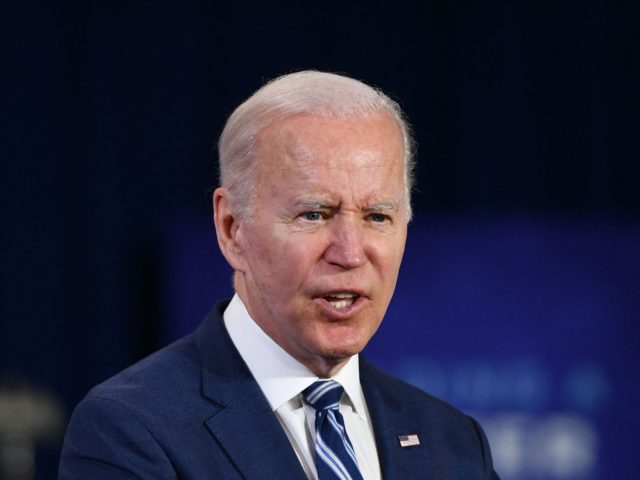The U.S. Court of Appeals for the Sixth Circuit will allow President Joe Biden to implement his “sanctuary country” orders, according to a decision issued on Tuesday.
The Sixth Circuit reversed a lower district court’s order that put a “nationwide preliminary injunction” on the “sanctuary country” orders while litigation continued.
Biden’s orders protect criminal illegal aliens from deportation because they prevent Immigration and Customs Enforcement (ICE) agents from arresting and deporting illegal aliens unless they pose a “current threat to public safety.”
Biden first instituted similar orders in February, but a successful legal challenge brought by Texas and Louisiana prevented them from being implemented. In September, Biden issued these new orders that the U.S. District Court for the Southern District of Ohio issued an injunction against last month following a legal challenge from Arizona, Montana, and Ohio.
The Sixth Circuit’s Chief Judge Jeffrey Stuart Sutton said that “even if the injunction remained in place—in other words, if the Guidance were removed—that would not necessarily result in the Department arresting more people, detaining more people, or removing more people.”
Sutton wrote:
Even the premise that the Guidance has coincided with a fall in immigration enforcement overall does not lead to the conclusion that the Guidance is the culprit, let alone the challenged portion of the Guidance. Other explanations exist. The National Government’s main enforcement authority affecting noncitizens within a State after all has little to do with detention and removal decisions at the back end. It has to do with prosecutorial discretion at the front end when immigration agents and law enforcement decide whom to arrest and whom not to. The States do not challenge this classic form of prosecutorial discretion, and the consequential exercise of discretion when it comes to noncitizen populations in Arizona, Montana, and Ohio. See Texas v. United States, 14 F.4th 332, 337 (5th Cir.), vacated, 24 F.4th 407 (5th Cir. 2021) (en banc). Even if the injunction remained in place—in other words, if the Guidance were removed—that would not necessarily result in the Department arresting more people, detaining more people, or removing more people.
Interestingly, Sutton wrote a concurring opinion to his majority opinion that attacked the process whereby lower federal courts issue nationwide injunctions.
Sutton said:
Call them what you will—nationwide injunctions or universal remedies—they seem to take the judicial power beyond its traditionally understood uses, permitting district courts to order the government to act or refrain from acting toward nonparties in the case.
“The law already has a mechanism for applying a judgment to third parties,” he said.
“Nationwide injunctions sometimes give States victories they did not earn and sometimes give States victories they do not want,” he continued.
The case is Arizona v. Biden, No. 22-3272 in the U.S. Court of Appeals for the Sixth Circuit.

COMMENTS
Please let us know if you're having issues with commenting.